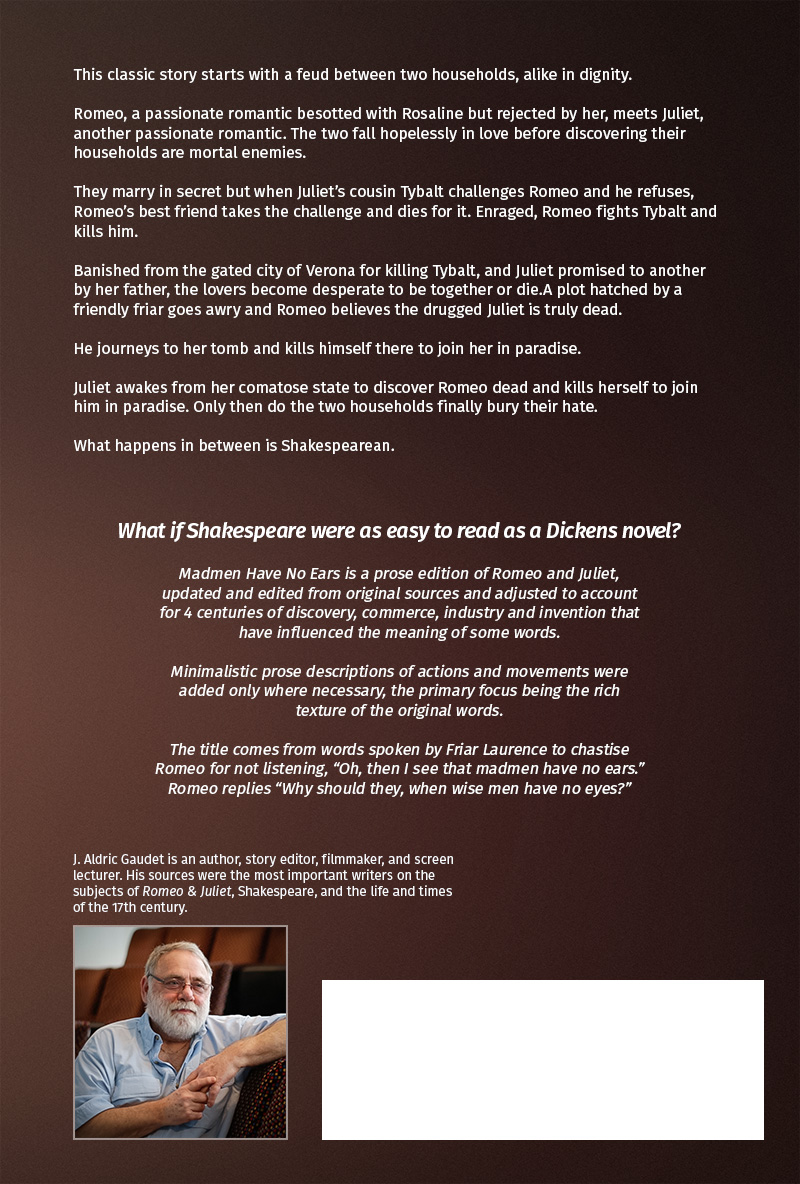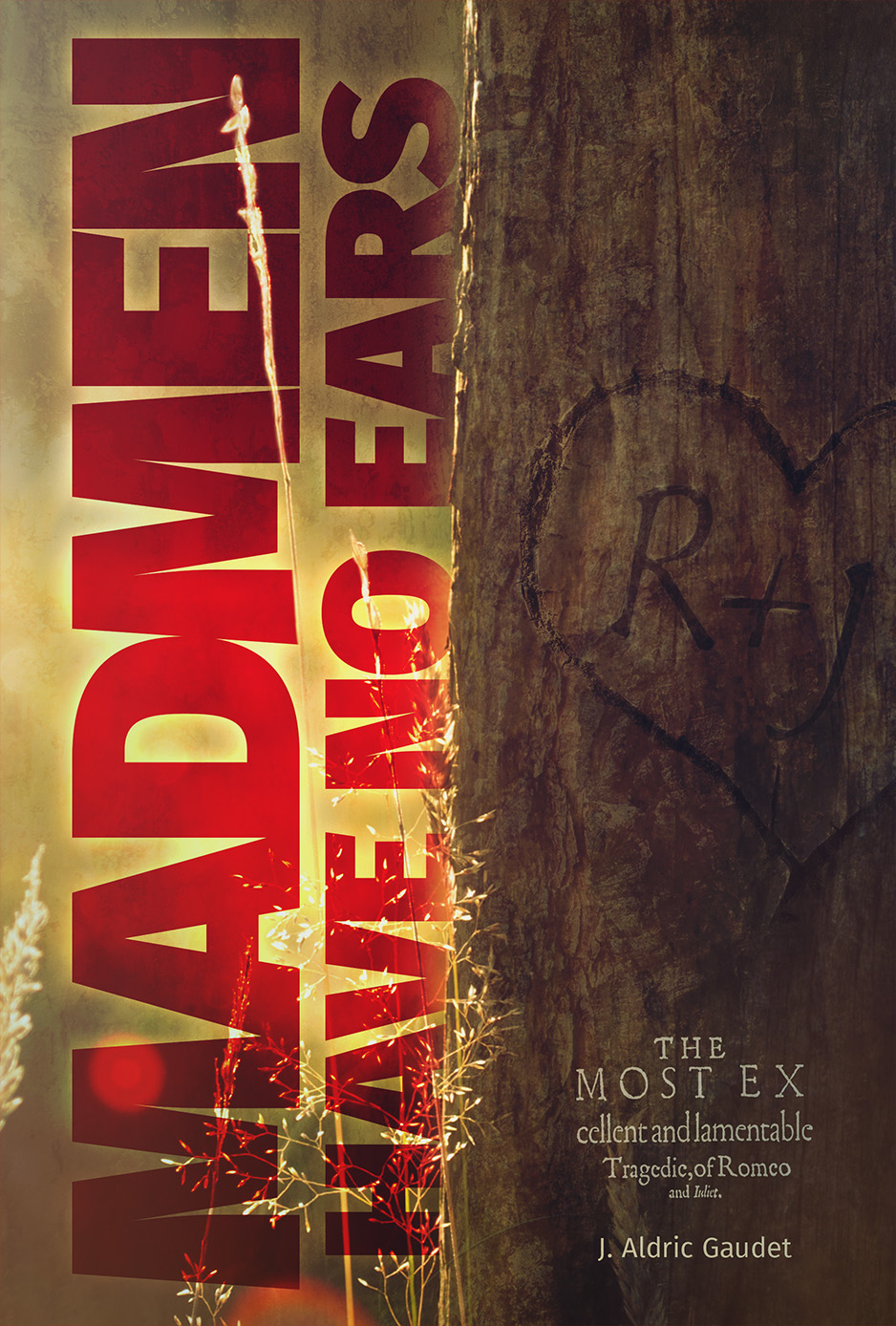














Summary
This classic story starts with a feud between two households, alike in dignity.
Romeo meets Juliet and they fall passionately in love before discovering their households are mortal enemies.
They marry in secret so when Juliet’s cousin Tybalt challenges Romeo he refuses. Romeo’s best friend takes the challenge and dies for it.
Enraged, Romeo kills Tybalt.
Banished from the gated city of Verona for killing Tybalt, and Juliet promised to another by her father, the lovers become desperate to be together or die.
A plot hatched by a friendly friar goes awry and Romeo believes the drugged Juliet is truly dead. He journeys to her tomb and kills himself there to join her in paradise.
Juliet awakes from her comatose state to discover Romeo dead and kills herself to join him in paradise. Only then do the two households finally bury their hate.
What happens in between is Shakespearean.
Details
This is a prose version of the play pruned of the grammatical weeds surrounding 4 centuries of language growth.
Minimalistic prose descriptions of actions and movements were added only where necessary, the primary focus being the rich texture of the original words.
The title comes from words spoken by Friar Laurence to admonish Romeo for not listening, “Oh, then I see that madmen have no ears.” Romeo replies “Why should they, when wise men have no eyes?”
Shakespeare Light
The Shakespeare Light series are prose editions of his plays updated and edited from original sources and adjusted for 400 years of language development.
These include:
The Most Excellent and Lamentable Tragedy of Romeo and Juliet – Madmen Have No Ears.
The Tragedy of Cymbeline – Imogen.
The Tragical History of Hamlet, Prince of Denmark – Not To Be.
It seems reasonable to me that if linguists agree that the pronunciation of words has changed quite drastically in 400 years and that to get the real true value out of the poetry of Shakespeare one would have to speak with that same pronunciation which would make it even more difficult to understand. Even the rhythm of word phrases becomes difficult when pronunciation has changed that much. Only that would be pure Shakespeare.
I applied that same logic to the words themselves and updated them accordingly.













